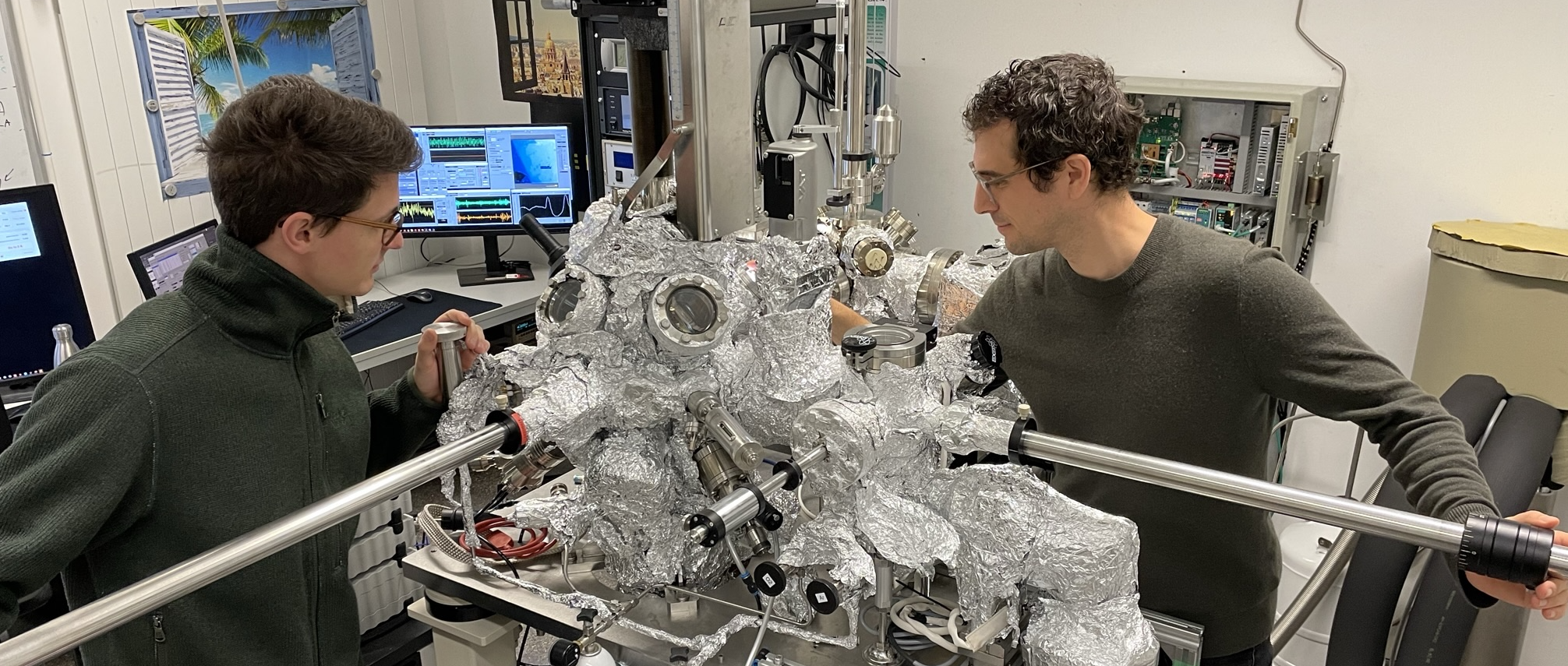Experimental condensed matter physics deals with the fundamental properties of crystalline solids, polymeric materials, designed artificially produced solids (metamaterials), as well as biophysical issues.
Which effects can be observed, how can they be understood, and how can they be applied beneficially? In several KIT institutes, these different aspects are investigated, especially with respect to optics & photonics, 3D nano-printing methods, quantum materials, quantum limited sensors, superconducting circuits, and quantum circuits. Teaching in the Physics Master's program is oriented towards research and applications.
The core subjects in the Experimental Condensed Matter Physics course program are:
- Physics of Semiconductors
- Electronic properties of solids (magnetism and superconductivity).
The core subjects are complemented by special lectures in the fields of
- Nano-Optics
- Surface physics
- Superconducting circuits and quantum computing
- Quantum magnetism
- Molecular electronics
- Scanning probe methods
- Electron microscopy
- X-ray diffraction
- Solid state optics
- Solid state spectroscopy
- Transport in nanostructures
- Experimental Biophysics
- Physics of semiconductors
- Electronic properties of solids (magnetism and superconductivity)
as well as advanced seminars in which students give lectures on current problems.
The goal of the Master's program in Experimental Condensed Matter Physics is to introduce students to experimental techniques and the wide variety of physical effects, and to prepare them for experimental Master's theses on current topics.

